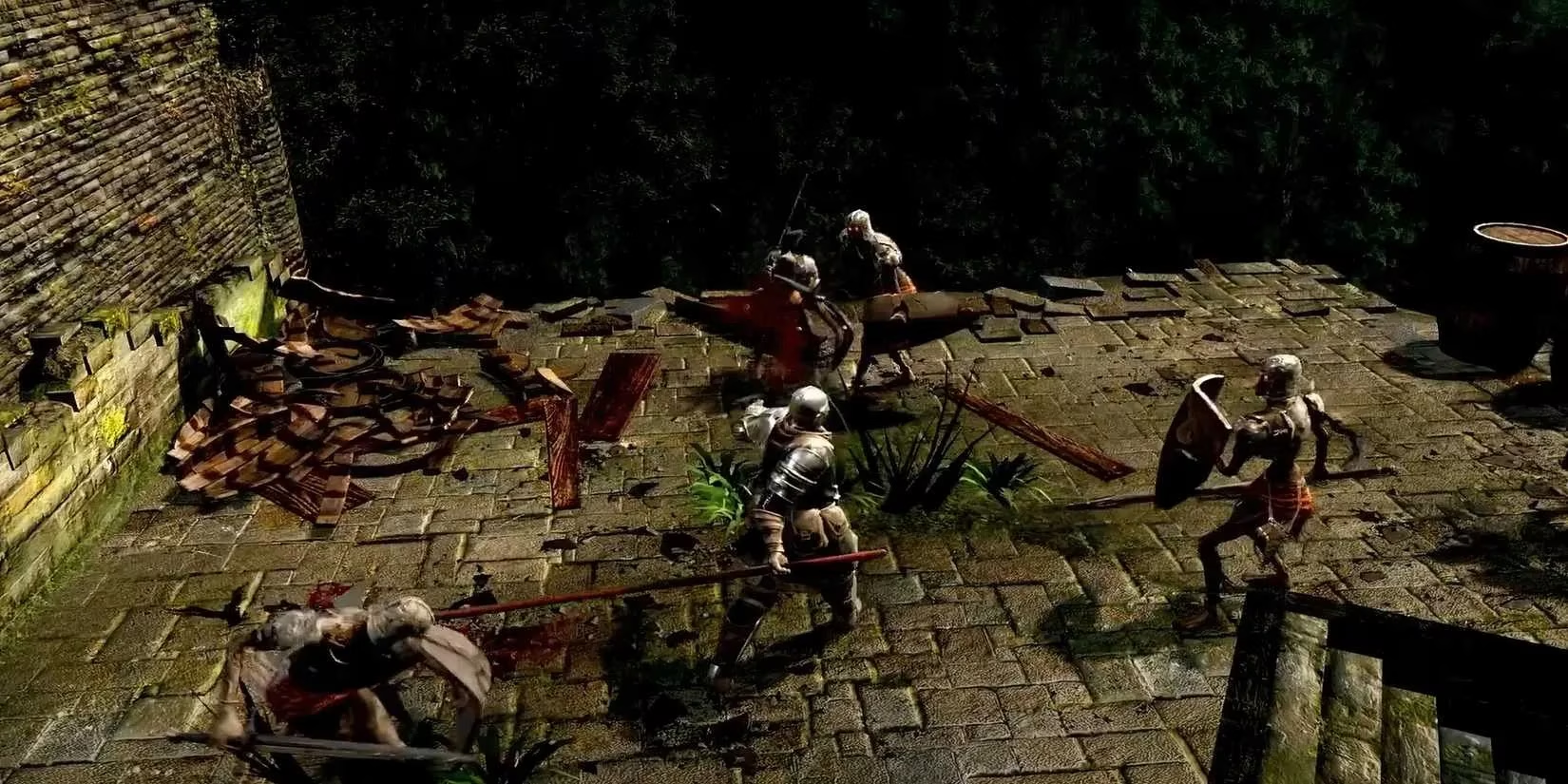The Most Pointless Game Remasters: 8 Titles That Left Players Scratching Their Heads
Remastering classic games offers revitalization but often results in superficial upgrades and corporate overreach, disappointing fans and questioning value.
Remastering classic games presents developers with a golden opportunity: revitalize beloved experiences through visual enhancements and quality-of-life improvements, extending their lifespan for modern audiences. Yet some efforts leave players baffled—questioning the very purpose behind their existence. These remasters range from minimal-effort ports charging premium prices to technically broken releases that undermine the original's legacy. Examining eight notorious examples reveals how corporate decisions often overshadow player expectations, creating experiences that feel less like celebrations and more like cynical cash grabs.
8 Dark Souls Remastered (Console Versions)

While PC players received meaningful upgrades, console editions of Dark Souls Remastered felt like a half-hearted gesture. The touted 60FPS boost provided smoother combat, yet visual improvements remained negligible—barely distinguishable from the original PlayStation 3 and Xbox 360 versions. Charging full price for such marginal enhancements puzzled fans, especially when core mechanics went untouched. Though convenient for avoiding dusty consoles, the steep cost felt unjustified for what essentially amounted to a resolution bump. The experience highlighted how platform disparities can fracture remaster quality.
7 The Elder Scrolls V: Skyrim Anniversary Edition
Bethesda's rerelease strategy with Skyrim reached peak absurdity here. Beyond adding fishing (already achievable via mods years prior), the Anniversary Edition primarily bundled existing paid mods while disrupting the game's thriving modding ecosystem. Overnight, thousands of community creations required updates, forcing players to reinstall previous versions. For a title sustained by fan passion, this corporate overreach felt particularly tone-deaf. The minimal new content couldn't justify rebuying the game, turning a legendary RPG into a cautionary tale about milking franchises.
6 The Last of Us Part 1 (PS5)
Sony's "remake" of a 2014 remaster epitomized diminishing returns. While character models gained stunning detail, the underlying gameplay and narrative remained identical to the PS4 version—itself still playable on PS5. Beyond accessibility tweaks, the changes felt cosmetic rather than transformative. Marketing it as a ground-up remake sparked debates about authenticity in an industry increasingly repackaging classics. The graphical polish impressed, yet couldn't mask the déjà vu of paying $70 for an experience fundamentally unchanged from a $20 remaster.
5 Crysis Remastered
Ironically, this remaster failed its own legacy as a PC benchmark. Ray-traced lighting introduced visual inconsistencies while performance plummeted below the notoriously demanding 2007 original. Worse, Crytek removed signature physics systems that defined the gameplay, stripping away sandbox creativity. The result felt like a tech demo gone wrong—prioritizing flashy effects over playability. With Crysis 4 still MIA by 2025, this botched update underscored how misplaced resources can alienate fans yearning for meaningful sequels rather than hollow revisits.
4 Red Dead Redemption (2023)
Rockstar's approach here felt particularly egregious: a barebones port of a 2010 masterpiece sold at 2023 prices. Visuals showed negligible upgrades, while 60FPS—a basic expectation—arrived post-launch via patches. The unchanged gameplay highlighted how dated mechanics feel without thoughtful modernization. Even more baffling? Simultaneous price hikes for 2018's Red Dead Redemption 2. This remaster seemed designed to capitalize on nostalgia rather than enhance accessibility, especially when emulators already delivered comparable experiences for years.
3 Silent Hill HD Collection
Konami's remaster actively sabotaged two horror masterpieces. Using unfinished beta code, it eliminated the iconic fog that built tension, introduced game-breaking glitches, and replaced voice acting with inferior recordings. Visuals appeared washed-out rather than enhanced, draining the atmosphere that made Silent Hill 2 and 3 timeless. For series veterans, this wasn't just disappointing—it felt like vandalism. New players might tolerate its flaws, but the collection's very existence raises philosophical questions about preserving artistic intent versus强行"modernizing" classics.
2 Warcraft III: Reforged
Blizzard's handling of this remaster bordered on self-sabotage. By delisting the original and forcing this version upon players, they erased access to a foundational RTS. Promised features like redesigned cutscenes and toggleable graphics vanished at launch, replaced by:
-
🎮 Clunky animations undermining unit responsiveness
-
🌐 Broken multiplayer matchmaking via Battle.net
-
🖼️ Generic art replacing the distinct visual charm
Worse, the remaster omitted content from the 2002 classic while introducing game-breaking bugs. This wasn't just underwhelming—it felt like a betrayal of the modding community that birthed genres like MOBAs.
1 Grand Theft Auto: The Trilogy – Definitive Edition
Rockstar hit rock bottom with this disastrous collection. AI-upscaled character models created grotesque, uncanny-valley faces while rain effects rendered gameplay impossible. Controls regressed, bugs proliferated, and the original versions were pulled from stores—forcing players into this mess. Even after patches fixed critical issues, the damage was done: a trilogy that defined open-world gaming became synonymous with corporate greed. Comparing launch states reveals the fiasco's scale:
| Feature | Original Trilogy | Definitive Edition (Launch) |
|---|---|---|
| Character Models | Stylized, cohesive | Glitchy AI distortions |
| Weather Effects | Functional | Screen-obscuring downpours |
| Stability | Playable | Game-crashing bugs |
| Availability | Purchasable | Delisted, forcing this version |
Future Outlook: Beyond the Remaster Rut
Perhaps the most disheartening trend isn't the existence of these remasters but their recurring patterns: minimal effort, maximum price, and disregard for preservation. As gaming approaches its sixth decade, the industry must prioritize:
🔁 Ethical Re-releases – Enhancing classics without erasing originals
🎚️ Player-Centric Pricing – Fair costs reflecting actual improvements
🧩 Modder Collaboration – Integrating community innovations officially
Personally, seeing franchises like Silent Hill and Warcraft mishandled fuels cautious pessimism. Yet hope lingers in projects like the masterful Resident Evil 2 remake—proof that reimaginings can honor legacies while innovating. If publishers embrace that spirit over quick profits, we might finally move beyond this era of pointless remasters into one where revisiting classics feels exciting rather than exploitative. Until then, players might wisely heed one motto: mod before you buy.